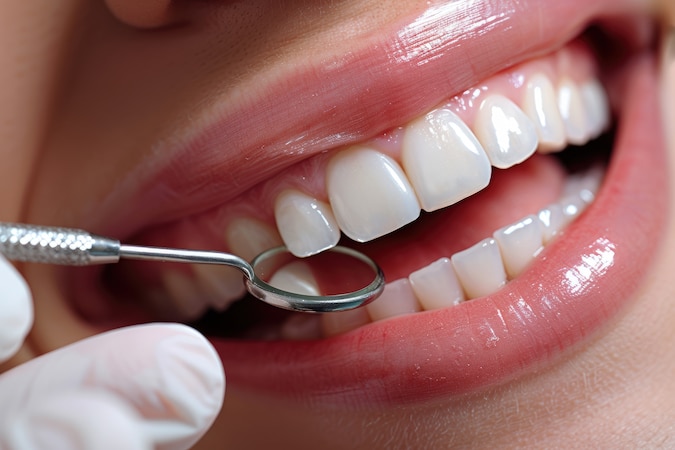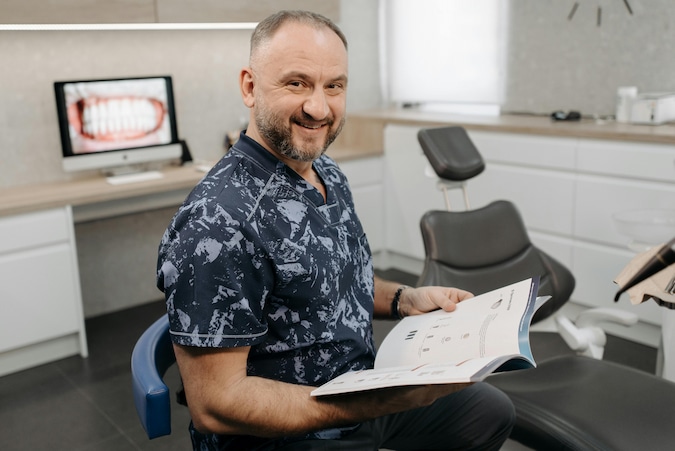With so many benefits for one low price, the decision is easy. Easy. Simple. Selfgood.

Dental Insurance and the Importance of Regular Checkups

Preventive care through regular dental checkups is crucial for maintaining oral health and saving money. Dental insurance helps make these vital services accessible and affordable, reducing the risk of costly dental issues.
Maintaining good oral health is vital for overall well-being, and regular dental checkups play a key role in this. Dental insurance makes these preventive services more accessible and cost-effective, helping you avoid expensive dental procedures in the long run. Understanding the benefits of dental insurance and the importance of regular checkups can lead to better health and financial savings.
Key Takeaways:
- Dental insurance often covers preventive care, including regular checkups and cleanings.
- Preventive care helps detect dental issues early, preventing more serious and costly treatments.
- Regular professional cleanings remove plaque and tartar, which are hard to eliminate with at-home care alone.
- Preventive care is crucial for maintaining overall health, as oral health is linked to conditions like heart disease and diabetes.
Understanding Dental Insurance

- Dental insurance is designed to help manage the cost of dental care, making essential services more affordable. Most plans cover preventive care, including routine checkups, cleanings, X-rays, fluoride treatments, and sealants. These services help maintain oral health and prevent more severe issues from developing.
- There are various types of dental insurance plans, such as individual plans, employer-sponsored plans, and Medicare Advantage plans for seniors. Each type offers different coverage options and costs. Employer-sponsored plans often cover a higher percentage of preventive services, while individual plans might offer more flexibility in choosing providers. Dental insurance reduces out-of-pocket costs, encouraging regular preventive care that can prevent expensive treatments later1.
What Is Preventive Dental Care?
- Preventive dental care includes services and practices aimed at preventing dental problems before they occur. Key components include regular checkups, professional cleanings, fluoride treatments, and sealants. These measures help maintain oral health, reduce the risk of cavities, gum disease, and other serious dental issues.
- Regular checkups allow dentists to monitor oral health, catch potential problems early, and provide appropriate treatments or advice. Professional cleanings remove plaque and tartar that brushing and flossing alone cannot eliminate, reducing the risk of tooth decay and gum disease. Fluoride treatments strengthen teeth, making them more resistant to decay, while sealants protect the grooves of teeth from cavities. This proactive approach significantly reduces the likelihood of needing extensive dental work2.
Why Regular Dental Checkups Are Essential
- Regular dental checkups are crucial for early detection of dental issues, saving you from pain, inconvenience, and costly treatments. Early detection of cavities can lead to simple fillings instead of more invasive procedures like root canals. Similarly, identifying gum disease early can prevent the need for more complex and expensive treatments.
- Oral health is closely linked to overall health, with studies showing connections between oral health and conditions such as heart disease, diabetes, and stroke. Infections in the mouth, like gum disease, can spread to other parts of the body, worsening chronic health conditions. Regular checkups help maintain oral health and contribute to overall well-being by catching potential health issues early3.
- Dental checkups also provide an opportunity for personalized advice on oral hygiene practices and diet. Dentists can recommend specific products or techniques tailored to your needs, helping you maintain optimal oral health between visits. This proactive approach ensures your mouth and body remain healthy4.
Benefits of Professional Dental Cleanings
- Professional dental cleanings are an essential part of preventive care. These cleanings remove plaque and tartar that accumulate over time, which can lead to cavities, gum disease, and bad breath if left untreated.
- Cleanings not only protect your oral health but also enhance the appearance of your teeth by removing surface stains and buildup. This contributes to a brighter smile and fresher breath. Additionally, regular cleanings reduce bacteria in your mouth, helping prevent systemic health issues linked to oral bacteria5.
- Regular cleanings are also crucial for maintaining gum health. Gum disease, which affects nearly half of American adults, begins with gingivitis, a reversible condition if caught early. Regular cleanings and checkups allow for early detection and treatment, preventing more severe forms of gum disease that can lead to tooth loss and other health complications6.
Financial Benefits of Preventive Care Through Dental Insurance
- Investing in preventive dental care through insurance can lead to significant financial savings over time. Dental insurance typically covers 100% of preventive services, meaning you can access these essential services at little to no cost. By taking advantage of these benefits, you reduce the risk of developing severe dental issues that require costly treatments.
- The cost of procedures like root canals and crowns can be several times higher than that of a filling, and much higher than the cost of regular checkups and cleanings. By using your dental insurance to maintain preventive care, you can avoid these major expenses and keep your dental costs predictable and manageable.
- Understanding your insurance benefits, such as annual maximums and co-pays, is key to maximizing your coverage. Many plans have an annual maximum, which is the total amount the insurance will pay in a year. By staying on top of preventive care, you can ensure that your insurance benefits are used effectively, reducing your out-of-pocket costs for more extensive procedures if necessary7.
Common Preventive Dental Procedures Covered by Insurance

- Dental insurance plans often cover a variety of preventive procedures essential for maintaining oral health. These typically include:
- Fluoride Treatments: Fluoride strengthens enamel, making it more resistant to decay. These treatments are especially beneficial for children but can also be valuable for adults at high risk of cavities.
- Dental Sealants: Sealants are thin, protective coatings applied to the chewing surfaces of the back teeth, where cavities often develop. They are particularly effective in preventing decay in children and teenagers.
- X-rays: Regular dental X-rays allow dentists to detect problems not visible during a standard exam, such as cavities between teeth, bone loss, or infections at the root of a tooth. X-rays are often covered by insurance at specific intervals, depending on the plan.
- These procedures are generally covered by insurance at no additional cost, making it easier to access comprehensive preventive care and maintain oral health8.
At-Home Preventive Care Practices
- While professional dental care is essential, maintaining a consistent at-home oral hygiene routine is equally important in preventing dental problems. Brushing at least twice a day with fluoride toothpaste, flossing daily, and using mouthwash can significantly reduce the risk of cavities, gum disease, and other oral health issues.
- A tooth-healthy diet is also crucial. Limiting sugary snacks and drinks, eating plenty of fruits and vegetables, and drinking water can help keep your teeth strong and your mouth healthy. Foods rich in calcium and phosphorus, like dairy products and nuts, help to strengthen tooth enamel9.
- Many dental insurance plans offer educational resources and tools to help you maintain good oral hygiene at home. These may include access to online resources, toothbrush replacement programs, or discounts on oral care products. By taking advantage of these resources, you can complement your professional care with effective at-home practices10.
Special Considerations: Children and Seniors
- Preventive dental care is particularly important for children and seniors, who have unique dental needs. For children, early dental visits are crucial in establishing good oral hygiene habits and monitoring the development of their teeth. Maintaining healthy baby teeth is essential, as they hold space for permanent teeth and play a role in proper speech development. Dental sealants and fluoride treatments are particularly effective preventive measures for children.
- For seniors, preventive care helps manage the challenges of aging teeth, such as increased susceptibility to decay, gum disease, and tooth loss. Seniors often face dry mouth, a side effect of many medications, which can increase the risk of cavities and gum disease. Medicare Advantage plans often include dental coverage, providing access to necessary preventive services that help maintain oral health in later years.
- Both age groups benefit from insurance plans that cater to their specific needs. Pediatric dental coverage is often included in family dental plans, while seniors can explore Medicare Advantage plans that offer dental benefits tailored to their needs11.
Final Thoughts
- Regular dental checkups and cleanings are vital for maintaining both oral and overall health. With the support of dental insurance, preventive care becomes more accessible and affordable, helping you avoid discomfort and high costs associated with advanced dental issues. By combining professional care with diligent at-home practices, you can ensure a healthy, confident smile for years to come. Take action today by scheduling your next dental visit and reviewing your insurance plan to ensure you are fully utilizing your benefits.
Frequently Asked Questions:
How often should I visit the dentist for checkups and cleanings?
- It is generally recommended to visit the dentist every six months for checkups and cleanings. However, your dentist may suggest more frequent visits based on your oral health needs.
What does dental insurance typically cover under preventive care?
- Most dental insurance plans cover preventive care at 100%, including exams, cleanings, X-rays, fluoride treatments, and sealants.
How can I maximize my dental insurance benefits?
- To maximize your benefits, schedule regular preventive visits, understand your plan’s coverage and limitations, and take advantage of additional resources your insurance may offer, such as educational tools or discounts on oral care products.




